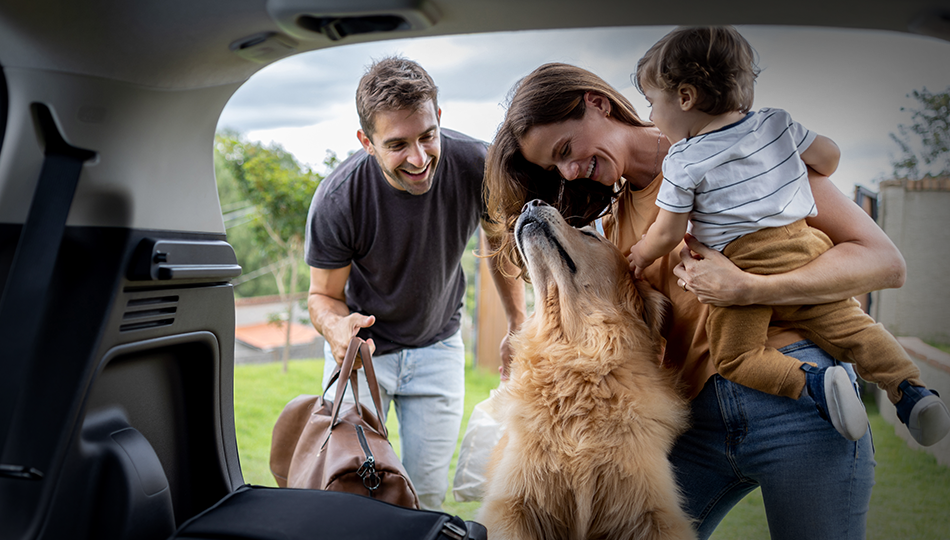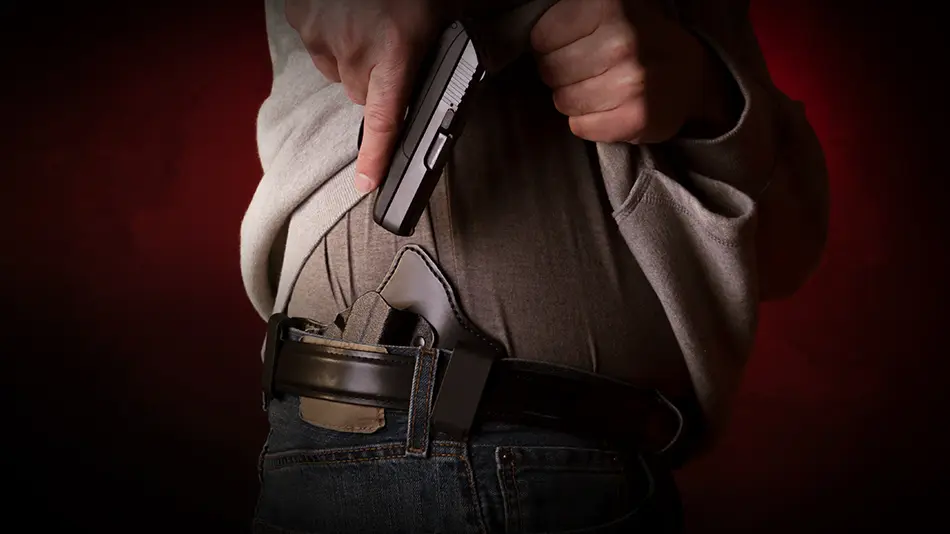Consent to Search
You’re driving home after a long day of work, and a police officer stops you for speeding. He pulls out his ticket book and he asks if there’s anything in the car he should know about. Perplexed, you say no. The officer hands you a ticket and then asks if he can take a look in your car. Do you have to let him into your car? No. Thanks to the Fourth Amendment to the United States Constitution.
Court battles have eroded the Fourth Amendment to the point where more searches today are performed by law enforcement without a warrant than with one. These exceptions to the warrant requirement are numerous and nuanced, and this video will only cover one of them: consent. Also, the most common.
But, to start us off, we have to begin with the Fourth Amendment which reads: “The right of the people to be secure in their persons, houses, papers, and effects against unreasonable searches and seizures shall not be violated. And no warrants shall issue, but upon probable cause supported by oath, or affirmation, and particularly describing the place to be searched and the persons or things to be seized.”
What is a search? A search is a government agent’s intrusion into a person’s reasonable expectation of privacy. The Fourth Amendment provides that the police must obtain a warrant based on probable cause to interrupt this right lawfully, but if a police officer asks to search your person, your vehicle, or home, and you say yes, he isn’t required to obtain probable cause or a warrant. You have provided consent, and this is the most frequently cited exception to the warrant requirement.
What You Can Do if Asked for Consent to Search?
So, what if you find yourself resting comfortably in bed at 2 AM and you hear a loud knock at the front door, and an authoritative voice calls out, “Police; open up”? Do you have to let them in? If they don’t possess a valid warrant, then no. If they claim to have a valid warrant, they will likely force entry into your home if you refuse them entry. In some cases, they don’t even have to knock and announce.
When it comes to a vehicle, most good folks would think they have nothing to hide and allow the police to search it. There are perils to this. You waive any argument that any evidence was gathered illegally. For example, if you keep your prescription thyroid medication in a pill divider and not the original prescription bottle, you could be arrested immediately. It’s always good practice to refuse consent to the search of your home or your car because you never know what the police may find and use against you.
If you do refuse consent, do so politely. Police officers will generally be annoyed by a person who doesn’t permit them to search. The good news is that it’s not against the law. If they want to search your car or your home and they don’t have an exception, they’re required to get a warrant. If you have any questions about the Fourth Amendment or police interactions, please call U.S. LawShield and ask to speak to an Independent Program Attorney today.





Thank you all!
I am also from Texas and I have been pulled over 3x since I got my LTC. Each time I hand the officer BOTH my Drivers License and LTC and in each instance they asked me if I had my weapon with me. Upon my affirmation and location of the weapon (driver’s side door, trunk, on me) I received a warning instead of a ticket. When I went through my Concealed Carry class years ago that’s what my instructor recommended and I’m glad.
A dirty cop will plant something in your car
Get caught. Then resign, go to another state or county and get rehired.
Most judges are scared of the police.
Also will believe everything the cop says to them.
Acquired immunity is what we have to fight against.
There the biggest gang in America. They say not all cops are bad, I say they’re all bad because the ones that say they’re good look the other way.
It’s an institution with different levels of membership
Where you don’t have random drug tests.
I knew of a cop that traded sex and drugs as an option for not locking up women.
He moved when it became to well known.
What I’m trying to say is they make and enforce their own rules.
Since most of the comments were about vehicle searches, if you buy a used vehicle, especially from a private seller, the first thing to do is clean that vehicle from top to bottom. The previous owner may have used drugs or carried firearms in the car. If it’s now your car, it’s your drugs or something else that could cause you harm. Clean it once, then do it again. Safety is your responsibility. Don’t let someone else’s bad habits become your ruin.
Thank you for sharing this information. It is helpful.
When my son was younger he used to get stopped quite often when he would leave his shop the mall and give some of his friends a ride who were also working at the mall. And he would let law enforcement search his car as he told me he had nothing to hide. The problem with that is when you’re letting people ride in your car you never know what they are carrying or due to fear of law enforcement maybe dropping or hiding something in your car and once police find it with a consent to search, then you can be charged. This is especially true if after it got dropped on a previous occasion and you are operating the car alone and you allow law enforcement to search the car, anything in the car is believed to be yours. It is simpler to say no thank you I have somewhere to be and I don’t wish to have my car searched.
In you are a licensed gun owner and your stopped in the state of Texas Are you required to tell the officer if you have a gun on you?
The comments about questions such as where you coming from and going to, are certainly fishing questions. Know that in some states, there are still restrictions on traveling with fire arms such as only to and from ranges, traveling in and out of states, how fire arms are carried in vehicles while traveling across a state, and others. First, know the laws in each state you are traveling in or through. Know if you need to tell an officer or not if you have a fire arm. All these questions can be answered before a trip by researching, I do that all the time. My wife and I love road trips and have gone all over the country in our car. I have two pistol safes in my trunk, one for the pistol and one for the magazine, because some states require they are separated while traveling through their states. I plan my carry everyday as to where we will be that day on travel. I would never consent to a search for the simple reason that laws do change regardless of what you think is correct.
Nobody trusts cops nowadays. They are all,pricks IMO.
Yes never consent to a search. I’m in Texas, and I witnessed this interaction. They brought in a drug dog to do an alert on a car. Here in Texas if a dog alerts, it’s considered enough to search. The K9 officer came out with his dog, walked up to the open door, and did two jerks on the lead, and the dog sat down, claiming the dog alerted. I train dogs and two jerks on the lead is the command to sit. So much for honesty. I also have a friend who had his seats removed from his car during a search, and when this found nothing, they just drove off, leaving him to call a wreaker, as he didn’t have the tools to reinstall. He allowed the search as he had nothing to hide.
My brother-in-law is an attorney that has been a prosecutor and defense attorney. His advice to me was don’t consent to a search – ever. If they find something after consent – to bad for you. He can’t argue an unlawful search if you consented.
If you tell a cop that you do not consent to them searching your vehicle, they are then VERY likely to say that they smell drugs or alcohol, and thereby establish their probable cause to be able to violate your 4th amendment rights. They are also likely to say you are detained until they can get a K-9 there to do a walk around. Of course we all know that these dogs are very well trained. The cops will make you sit back in front of their cruiser or on the curb while the handler takes the dog around your vehicle. Now the handler can use their little key to the dog to sit or whatever, but they then declare that the dog hit positive. Once again, they have now established probable cause to search your vehicle. If the cop is half way honest, they do their search and find nothing, they will then claim a false positive and let you go on your merry way. However they got what they wanted and made you pay for their shenanigans with your time. Of course the less than honest cop, and there are plenty of them, will then plant something in your vehicle during their search, just to teach you a lesson about messing with their authority to do as they please. Just be aware.